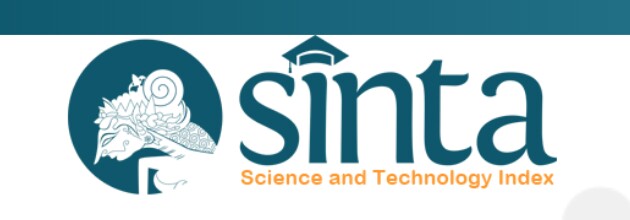PENGGUNAAN STRATEGI INKUIRI DALAM PEMBELAJARAN ISOLASI BAKTERI ASAL MOL DAN PENERAPANNYA SEBAGAI PUPUK HAYATI
Abstract
Keywords
Full Text:
PDFReferences
DAFTAR PUSTAKA
Batara LN. 2015. Kualitas mikroorganisme lokal (MOL) yang digunakan pada penanaman padi (Oryza sativa L.) dengan metode system of rice intensification (SRI) organik. [Tesis]. Pasacasarjana IPB.
Budiyani, N.K., Soniari, N.N dan Sutari, N.W.S. 2016. Analisis Kualitas Mikroorganisme Lokal (MOL.) Bonggol Pisang. E-Jurnal Agroteknologi Tropika. Vol 5 (1): Universitas Udayana. Bali.
Budiyanto, M. 2002. Mikrobiologi Terapan. Universitas Muhammadiya. Malang.
Hadiotomo, R. S. 1995. Mikrobiologi Dasar Dalam Praktek Teknik dan Prosedur Dasar Laboratorium. Gramedia.
Husen E, Irawan. 2008. Efektivitas dan efisiensi mikroba dekomposer komersial dan lokal dalam pembuatan kompos jerami. http:www.balittanah. litbang.deptan.go.id/ dokumen/prosiding2008pdf/ edihusen.pdf.
Irianto, K. 2006. Mikrobiologi, Menguak Dunia Mikroorganisme. Jilid 1. Yrama Widya. Bandung.
Isdaryanti, Abdullah. A dan Nawir, N.H.A. 2011. Isolasi dan karakerisasi bakteri pendegradasi Lignoselulosa Asal Rumen Sapi. Jurusan FMIPA UNHAS. Jurnal tidak diterbitkan.
Juanda, Irfan, dan Nurdiana. 2011. Pengaruh Metode dan Lama Fermentasi terhadap Mutu MOL (Mikroorganisme Lokal). Jurnal Floratek 6: 140–143. Fakultas Pertanian Unsyiah, Darussalam Banda Aceh.
Kesumaningwati R. 2015. Penggunaaan MOL bonggol pisang (Musa paradisiaca) sebagai dekomposer untuk pengomposan tandan kosong kelapa sawit. J Ziraa’ah vol 40 (1): 40-45 hlm.
Surono, I.S. 2004. Prebiotik susu fermentasi dan kesehatan. Tri Cipta Kara. Jakarta
Sutari, N. W. S. 2010. Uji Berbagai Jenis Pupuk Cair Biourine terhadap Pertumbuhan Dan Hasil Tanaman Sawi Hijau (Brassica juncea L.). Agritrop : Jurnal Ilmu-Ilmu Pertanian (Journal On Agricultural Sciences) edisi desember 2010. Vol.29.
Suyanto A, Irianti ATP. 2015. Efektivitas Trichoderma sp dan mikroorganisme local (MOL) sebagai decomposer dalam meningkatkan kualitas pupuk organik alami dari beberapa limbah tanaman pertanian. Jurnal Agrosains Vol 12 (2). ISSN 1693-5225. Hal 1-7.
Suhastyo AA. 2011. Studi mikrobiologi dan sifat kimia mikroorganisme lokal (MOL) yang digunakan pada budidaya padi metode SRI (system of rice intensif ication). [Tesis]. Bogor (ID): Intitut Pertanian Bogor.
Suhastyo AA, Anas I, Santosa DA, Lestari Y. 2013. Studi mikrobiologi sifat kimia mikroorganisme lokal (MOL) yang digunakan pada budidaya padi metode SRI (System of Rice Intensification). J Sainteks Vol x (2): 29-39 hlm.
Purwasasmita M, Kunia K. 2009. Mikroorganisme lokal sebagai pemicu siklus kehidupan dalam bioreaktor tanaman. Seminar Nasional Teknik Kimia Indonesia- SNTKI 2009. Bandung 19-20 Oktober 2009.
Widjajanti, H., Munawar & Nafiah. 2006. Isolasi, Seleksi, dan Karakterisasi Bakteri Hidrokarbonoklastik dari Limbah Cair Kegiatan Eksplorasi Minyak Bumi. Jurnal Pengelolahan Lingkungan & Sumber Daya Alam. Vol6(4): 22-31 hlm
Article Metrics
Abstract has been read : 1361 timesPDF file viewed/downloaded: 0 times
DOI: http://doi.org/10.25273/florea.v4i1.1058
Refbacks
- There are currently no refbacks.
Copyright (c) 2017 Florea : Jurnal Biologi dan Pembelajarannya
Florea: Jurnal Biologi dan Pembelajarannya indexed by:



Copyright Florea: Jurnal Biologi & Pembelajarannya
View Florea Stats





